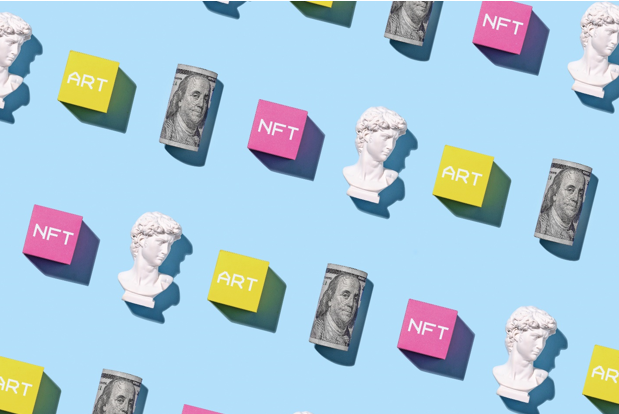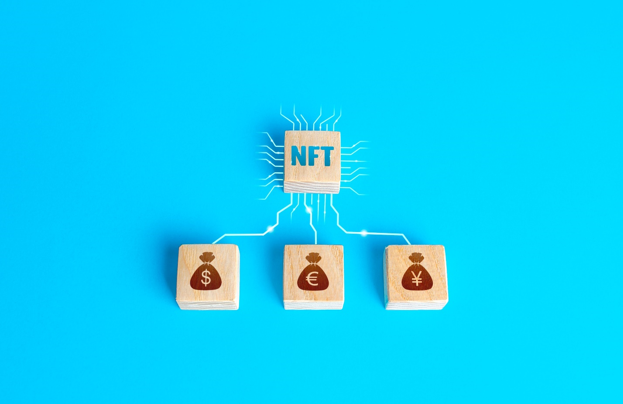Since the start of this year, non-fungible tokens (NFTs) have taken over the market with bang. As Dutch tulips were in the 17th century, these digital assets sell like tacos and toilet paper and not for pennies in the millions.
Is it worth it to invest in NFTs? Some Analysts predict they will burst soon, like the dotcom bubble and the Beanie Baby craze before them. On the contrary, it is also believed that NFTs are the future of investing, and they will redefine the future of investing.
A NFT is a digital representation of a real-world asset, such as art, music, in-game items and videos. Their underlying software is similar to a lot of cryptos, and they are bought and sold online along with cryptocurrency.
Despite being around since 2014, NFTs have now gained in popularity as a means for buyers and sellers of digital art. According to NFT stats, the industry has generated more than $174 million since November 2017.
The NFTs are also generally unique or limited editions and have unique identifying codes.
As opposed to digital creations, which almost always exist in infinite quantities. In the event of a supply shortage, a demand-driven asset's value should increase.
Nevertheless, many NFTs, at least in these early days, have been digital creations that are already available in some form elsewhere, like iconic video clips from Premier league football games or securitized versions of digital art that's floating around on Instagram.
In 2021, the legendary digital artist Beeple created an exhibition titled "EVERYDAYS: The First 5000 Days," made up of a composite of 5,000 daily drawings that sold for a record-breaking $69.3 million at Christie's.
Nowadays, you can view any of the images online for free. So the question here is why would anyone spend millions on something they can download or screenshot easily?
The simple answer is that the NFTs allow the buyer to retain ownership of the original item. Furthermore, it includes an authentication feature for proving the owner's identity. Collectors value their "digital bragging rights" nearly more than the actual items themselves.
Non-fungible tokens are referred to as NFT. While cryptocurrencies like Bitcoin or Ethereum are built using the same kind of programming, the way it's implemented is different though.
Cryptocurrencies and physical money are both fungible, which means that they can be traded and exchanged for one another. One dollar is always worth another dollar; one bitcoin is always worth another bitcoin. Blockchain transactions are made safe and secured by crypto's fungibility.
NFTs are unique. Since each NFT carries a digital signature, it cannot be exchanged for or equal to another (therefore, non-fungible). One English Premier League game Shot clip, for example, is not equal to EVERYDAYS simply as they’re both NFTs.
A majority of NFTs are stored on the Ethereum blockchain, but they can also be stored on other blockchains.
NFTs are created, or "minted", from digital objects representing intangible and tangible elements, such as:
It's important to count tweets in this revolution. Jack Dorsey, founder of Twitter, managed to sell his first ever tweet as an NFT for close to $2.9 million.
In essence, NFTs are just digital versions of physical collectibles. So, rather than a painting from the top artist to go on the wall, only a digital file is delivered to the buyer.
Exclusive ownership rights are also granted to them. Due to their use of blockchain technology, NFTs can have only one owner at a time, and ownership and transfers can be verified easily.
It is also possible for a creator to include specific information in the metadata of an NFT. Like, a signature can be affixed to an artist's artwork in order to sign it.

Artists and content creators have the opportunity to monetize their products using blockchain technology and NFTs. Artists, for instance, no longer have to depend on galleries or auction houses to sell their work. A NFT can instead be sold directly to the consumer, allowing the artist to keep more profits.
In addition, artists can incorporate royalties into their sale so that when their art is sold, a percentage of the sale will be paid out to them. Artists do not typically receive future proceeds after their work has been sold, so this is an attractive feature.
With NFTs, you can make money in more than one way. The NFT art was auctioned off by companies like Charmin and Taco Bell for charity.
LeBron James' highlight from the NBA Finals sold for more than $200,000.
Celebs like Snoop Dogg and Lindsay Lohan are releasing their own securitized NFTs, which contain cherished memories, artwork, and unique moments.
You'll need some key items in order to start your own NFT collection.
First, you’ll need to get a digital wallet that allows you to store NFTs and cryptocurrencies. Depending on what currencies your NFT provider accepts, you will likely have to purchase some cryptocurrency.
These days, it is possible to buy cryptocurrency using your credit card on Coinbase, Kraken, eToro as well as PayPal and Robinhood. Then you can transfer it to your wallet of choice from the exchange.
Nevertheless, Fees are an important factor to consider while you research options. A percentage of each transaction is typically charged by exchanges when you buy crypto.

NFTs are attractive to investors for many reasons.
Hasnain Raza Khan provides ghostwriting and copywriting services. His educational background in the technical field and business studies helps him in tackling topics ranging from career and business productivity to web development and digital marketing. He occasionally writes articles for Stocks Telegraph.